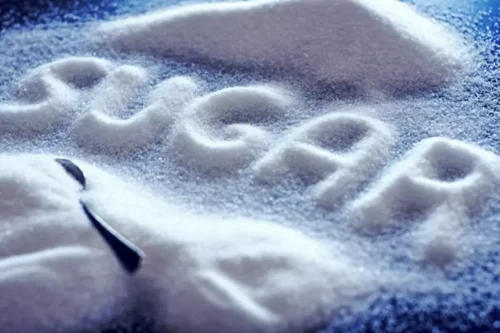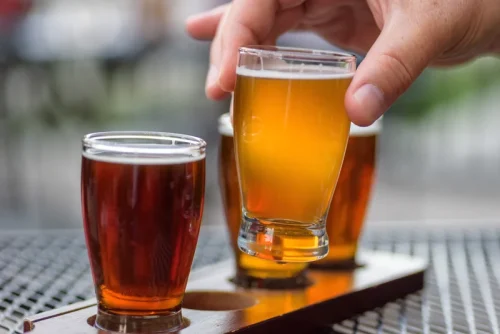
Read on to find out and pick up a few tips to help yourself feel better. Alcohol intolerance is caused by a genetic condition in which the body can’t break down alcohol efficiently. The only way to prevent these uncomfortable reactions is to avoid alcohol. If you are a heavy drinker and are experiencing a tremor or shakiness, you should consult with your physician or an addiction specialist.
What Are Alcohol Shakes Causes & Effects?

For example, some alcoholic beverages contain excessive sugar and calories, which can contribute to weight gain and other health issues. The following quiz is called the AUDIT, which is short for Alcohol Use Disorders Identification Test. It’s used by medical professionals to assess your risk for alcohol dependence. If you’re regularly dealing with shakes or other severe hangover symptoms, it might be time to take a step back and reevaluate your relationship with alcohol. If you’ve ever experienced a night of heavy drinking, chances are you know what it feels like to wake up the next day and feel jittery.

Welcome to Mainspring Recovery, The #1 Rehab Center in Virginia
This imbalance leads to your nervous system being a bit hyperactive. You might feel jittery, anxious, and yes, you might experience those shakes. Your body is basically trying to readjust, but it’s temporarily out of whack, causing you to feel shaky and uneasy.
Causes Of Alcohol Tremors
This is why you might find yourself ravenously hungry after a night of drinking. I used to scarf enough nachos after happy hour to feed a small army. If you don’t already have a supportive network, you can make new connections by joining social media communities dedicated to alcohol-free living. In a country where drinking is widely available in many settings, it can be hard to tell when your drinking has crossed the line into a problematic habit. When you go to social events or family gatherings, you are likely to have access to alcohol. Deep breathing is an essential component to many of these practices and works to trigger the body’s natural relaxation response.
- Stopping drinking abruptly can lead to seizures and can even be fatal.
- There are many support options available that can help guide you through alcohol withdrawal, as well as abstaining from alcohol after withdrawal.
- It’s a good starting point to figure out if your drinking habits are something you should be concerned about.
- Alcohol withdrawal can be a very severe experience and for long-term alcoholics, should be undertaken with medical supervision.
For mild or moderate drinkers, alcohol slows brain activity and lessens energy levels. However, when someone drinks alcohol regularly, their body adapts to its presence in their system. When someone is struggling with chronic or long-term alcohol dependence, they may experience tremors. Alcohol shakes, which are technically called tremors, are a type of involuntary shaking that affects different parts of the body. They are usually caused by issues with certain areas of the brain that control muscle movement.
Typical withdrawal side effects include sweating, anxiety, insomnia, headache, nausea, vomiting, and tremors. Side effects like hallucinations, seizures, and delirium tremens (DTs) are also possible. The symptoms of alcohol withdrawal https://ecosoberhouse.com/ typically begin a few hours after the last drink and peak within hours. However, for individuals who engage in heavy and prolonged alcohol consumption, symptoms may not appear until several days after quitting drinking.
Neurological Effects of Alcohol
Remember you are facing a difficult challenge during alcohol withdrawal, but you are not alone. There are many resources available to help, including peer support groups, counseling, therapy, and inpatient rehabilitation. For those with alcohol use disorder, withdrawal is just the first (but very important) step on a long journey how to stop alcohol shakes to recovery. These first few weeks are critical because they are when the risk of relapse is highest. Individuals should be prepared to be uncomfortable during this period and have medical help available if needed. This is the period in which delirium tremens is most likely to occur, which requires immediate medical attention.
- Find a supportive friend or family member to be with you while you withdraw and support your new non-drinking lifestyle.
- Evidence also suggests that even low to moderate amounts of alcohol consumption can also have negative health effects, such as increasing the risk for cancer.
- That’s why some alcoholics wake up shaky in the morning and need a drink to feel steady.
- Just be cautious when starting a new medication since it’s very easy to get addicted to withdrawal medications, especially when you’re quitting alcohol.
- In short, alcohol shakes are usually part of a hangover and go away on their own, while DTs are a severe, medical emergency that requires immediate attention.
- There are many resources available to help, including peer support groups, counseling, therapy, and inpatient rehabilitation.
For individuals who heavily consume alcohol over an extended period, the cessation of alcohol intake can lead to alcohol withdrawal syndrome. This syndrome can manifest with various symptoms, including shaking and tremors. In severe cases, a condition called delirium tremens may develop, characterized by seizures and potential fatality [2]. Blood and urine tests may also be done to determine the amount of alcohol the person has consumed, as well as any other additional drugs that may be in their system. There is no way to know if you will experience alcohol tremors after drinking, but symptoms usually start around 6 hours after your last drink, which is good to keep in mind.

